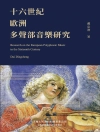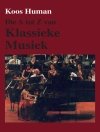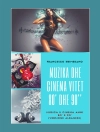Some of Debussy’s most beloved pieces, as well as lesser-known ones from his early years, set in a rich cultural context by leading experts from the English- and French-speaking worlds.
The music of Claude Debussy has always been widely beloved by listeners and performers alike, more perhaps than that of any of the other pioneers of musical modernism. However rich in itself, his creative output also participated, and continues to participate, in a network of cultural connections, the scope and meaning of which can only be gleaned through multiple interpretive frameworks.
Debussy’s Resonance offers twenty new studies by some of themost active and respected English- and French-language scholars of French music. The book treats a large swath of the composer’s music, from previously unexplored
mélodies of his early years to late pieces such as the ballet
Jeux and the
Douze Études, and takes into consideration the numerous contexts that helped shape the works and the different ways that musicologists and critics have explained them.
CONTRIBUTORS: Katherine Bergeron, Matthew Brown, David J. Code, Mark De Voto, Michel Duchesneau, David Grayson, Denis Herlin, Jocelyn Ho, Roy Howat, Steven Huebner, Julian Johnson, Barbara L. Kelly, Richard Langham Smith, Mark Mc Farland, François de Médicis, Robert Orledge, Boyd Pomeroy. Caroline Rae, Marie Rolf, August Sheehy
FRANÇOIS DE MÉDICIS is Professor of Music at the Université de Montréal. STEVEN HUEBNER is Professor of Music at Mc Gill University.
Spis treści
Introduction – Francois de Medicis and Steven Huebner
PART 1. HISTORIOGRAPHICAL AND EDITORIAL ISSUES
Debussy Fifty Years Later: Has the Barrel Run Dry? – Richard Langham Smith
The
Oeuvres complètes de Claude Debussy Thiry Years On – Roy Howat
The Kunkelmann Manuscripts: New Sources for Early
Mélodies by Claude Debussy – Denis Herlin
’Paysage sentimental’: 'Si doux, si triste, si dormant . . .’ – David Grayson
PART 2. STYLE AND GENRE
The 'Song Triptych’: Reflections on a Debussyan Genre – David J. Code
Composing after Wagner: The Music of Bruneau and Debussy, 1890-1902 – Francois de Medicis
Between Massenet and Wagner – Steven Huebner
Debussy’s Concept of Orchestration – Robert Orledge
Oriental and Iberian Resonances in Early Debussy Songs – Marie Rolf
PART 3. HISTORY AND HERMENEUTICS
Debussy and Japanese Prints – Michel Duchesneau
’Les sons . . . tournent’: Debussy, the Waltz, and Embodied Hermeneutics – August Sheehy
Secrets and Lies, or the Truth About
Pelléas – Katherine Bergeron
Vertige!: Debussy, Mallarmé, and the Edge of Language – Julian Johnson
PART 4. THEORETICAL ISSUES
Follow the Leader: Debussy’s Contrapuntal Games – Matthew Brown
Debussy’s Absolute Pitch: Motivic Harmony and Choise of Keys – Mark De Voto
Debussy’s G#/Ab Complex: The Adventures of a Pitch-Class from the
Suite bergamasque to the
Douze études – Boyd Pomeroy
The Games of
Jeux – Mark Mc Farland
PART 5. PERFORMANCE AND RECEPTION
Debussy and Late-Romantic Performing Practices: The Piano Rolls of 1912 – Jocelyn Ho
Marius-François Gaillard’s Debussy: Controversies and Pianistic Legacy – Caroline Rae
Fashioning Early Debussy in Interwar France – Barbara L. Kelly
List of Contributors
Index
O autorze
STEVEN HUEBNER is the James Mc Gill Professor (musicology) at the Schulich School of Music, Mc Gill University, Quebec, Canada.












